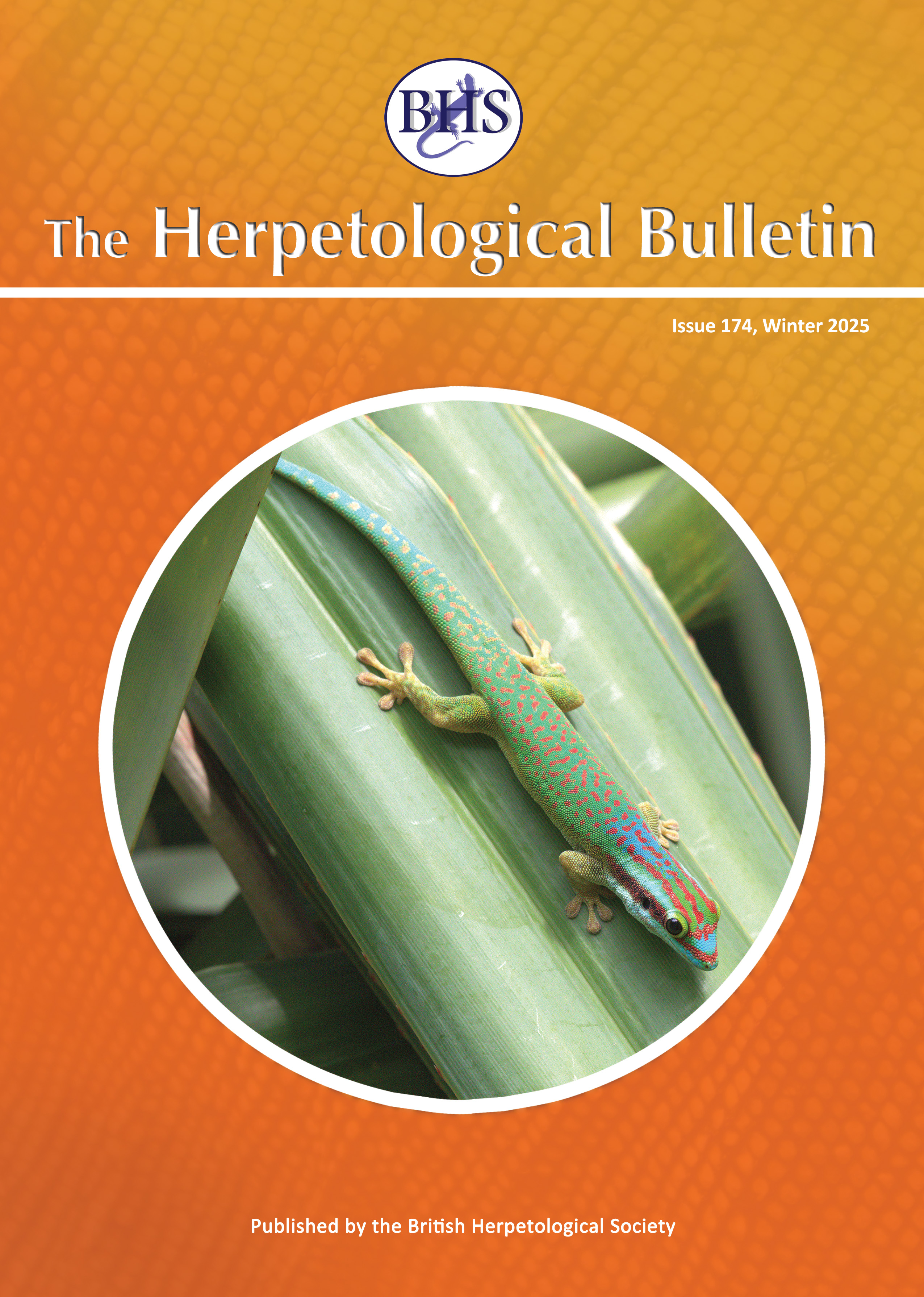
The Herpetological Bulletin
The Herpetological Bulletin is a quarterly publication in English. It includes full-length papers, natural history notes, book reviews, and other items of general herpetological interest. Emphasis is placed on natural history and conservation as well as captive care that includes breeding, husbandry, veterinary, and behavioural aspects.
pdf 03. How many Data Deficient amphibians are threatened? IUCN Red List assessments for amphibian species previously classed as Data Deficient
2708 downloads
Open Access
AUTHORS: HABEEBAH R. ISA, BENJAMIN TAPLEY & CHRISTOPHER J. MICHAELS
ABSTRACT: At the time of our research in 2022, 16.4% of amphibian species on the IUCN Red List were assessed as Data Deficient (DD). There is minimal funding allocated to the research and reassessment of DD taxa, this prevents them from being prioritised for conservation. We identified 656 non-DD amphibian species that were previously assessed as DD and used their subsequent assessment trajectories to predict the extinction risk of remaining DD taxa. Assuming similarity of the distribution of these taxa between extinction risk categories to those of currently DD species, we compared this dataset with the risk category distribution of assessed amphibians that had never been assessed as DD. Previously DD amphibians, when compared to those that were never DD, were found to be more threatened (52.1% vs. 39.6%) and less likely to be non-threatened (22.4% vs. 60.0%). When explored further at the level of Order, more previously DD amphibians in the Order Gymnophiona were reassessed as ‘Near Threatened’, more Caudata ‘Critically Endangered’ with fewer ‘Least Concern’, and more Anura ‘Vulnerable’ and ‘Endangered’ with fewer ‘Least Concern’ than counterparts that were never assessed as DD. Based on these previously-DD amphibian data, we estimated that around half (49.6%, n = 592) of currently DD amphibians are likely threatened by extinction. Our approach arrives at similar conclusions to authors using other approaches and bolsters the argument that conservationists and funding organisations should implement recommendations to address concerns for DD amphibians, especially DD Caudata.

